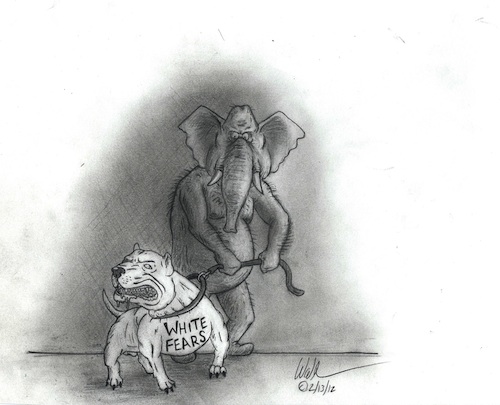On Tuesday morning, June 24, the Supreme Court announced its decision to strike down Section 4 of the Voting Rights Act of 1965, which designated certain states, counties, and townships, based on their history, for pre-clearance from the federal government before allowing them making changes to their voting laws. Chief Justice John Roberts, who authored the decision for Shelby v. Holder, explained that the provision no longer applied because the country had changed since 1965:
In 1965, the states could be divided into two groups: those with a recent history of voting tests and low voter registration and turnout, and those without those characteristics... Today the nation is no longer divided along those lines, yet the Voting Rights Act continues to treat it as if it were... Our country has changed and while any racial discrimination in voting is too much, Congress must ensure that the legislation it passes to remedy that problem speaks to current conditions.
But what exactly is it that has changed in America? Has the south indeed moved beyond its troubled past or has something else happened?
The Civil Rights Movement ushered in an age of political correctness that forced racism to be conveyed through indirect, coded language and slanted policy. Republican strategist Lee Atwater said it best in one of his classic "off the record" interviews in 1981:
You start out in 1954 by saying, "Nigger, nigger, nigger." By 1968 you can't say "nigger" -- that hurts you, backfires. So you say stuff like, uh, forced busing, states' rights, and all that stuff, and you're getting so abstract. Now, you're talking about cutting taxes, and all these things you're talking about are totally economic things and a byproduct of them is, blacks get hurt worse than whites. "We want to cut this," is much more abstract than even the busing thing, uh, and a hell of a lot more abstract than "Nigger, nigger."
What Atwater described is known today as the Southern Strategy. It is how the Republican Party managed to realign the south to become electorally viable after the huge popularity of the New Deal. Race used as a wedge issue has become the cornerstone of GOP politics -- and it has adapted with the times. As Atwater explained, the key to survival is abstraction because speaking in abstract terms allows for plausible deniability of the actual message.
However, only someone with a puerile understanding of American politics or an agenda of their own could look at Washington today, and not hear echoes of "nigger, nigger." For one thing, the Republican Party's electoral strategy has not changed since 1981 -- it still relies on the south for its base. Literally everything from the focus on cutting social programs, to the coded names Republican politicians have branded President Obama with, (including "reckless spender," "Food Stamp President," "Muslim," "foreign" and, of course, "anti-war, government nig--") is a calculated maneuver to help foster the view that many southern white conservatives hold: the president is an outsider.
Over the last five years congressional Republicans have essentially been boycotting the government. They refused to raise the debt ceiling which led to a downgrade of the U.S. credit rating, forced the sequester demanding spending cuts (in spite of economists agreeing that immediate deficit reduction was slowing the recovery), refused to pass any gun control measures after Sandy Hook, and rejected a bill to give students the same interest rates on their loans as the banks pay. This lack of cooperation is exactly what the GOP's base expects from their party.
The establishment recognizes that losing the south means reassuming minority party status (such was was the case before the realignment when the GOP couldn't capture majorities in Congress). And so for this reason if there really had been a change it would be reflected by the Republican Party. However, given the fact that the Southern Strategy is still in use, it proves beyond a shadow of a doubt, that racial sentiments still exist in the region.

